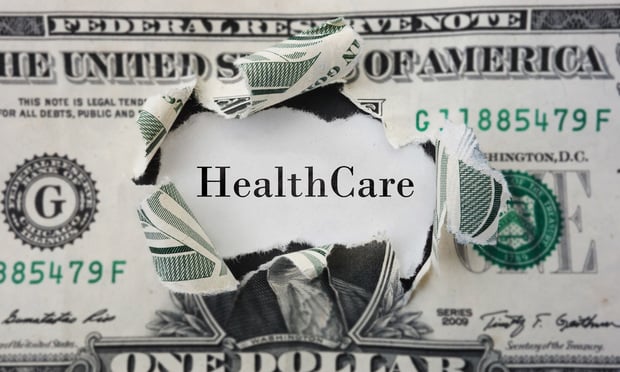 (Credit: DaveBerk/Thinkstock)
(Credit: DaveBerk/Thinkstock)
Doctors and hospitals love to hate health insurers' efforts tomanage care, but the board of America's Health Insurance Plans(AHIP) says carriers should start to reactivate care managementprograms.
|Many health insurers suspended some or all active caremanagement programs as health care providers weremobilizing to fight the COVID-19 pandemic. Some let up on caremanagement as part of their own emergency planning, in compliancewith state mandates, or through responses to state emergencyplanners' requests.
|Related: UnitedHealth, other insurers offer discounts tocustomers hit by COVID-19
|Now, bringing those care management programs back online will bea part of safely re-opening the U.S. health care system, the AHIPboard said in a statement.
|Health insurers often use procedures such as precertificationand preauthorization to manage enrollees' use of health coverage,by deciding ahead of time whether proposed procedures areappropriate for a patient, and whether the patient's plan willcover the procedures.
|Health insurers waived preapproval requirements, andother administrative requirements, in March, to ease burdens onhealth care providers.
|Some health care providers are still struggling with a surge inpatients with severe cases of COVID-19, and health insurers want tocontinue to help those providers cope with capacity challenges, theAHIP board says.
|As health care providers in less hard-hit areas getback to normal, health insurers will bring back preauthorizationand precertification programs for those providers, the AHIP boardsays.
|"Used in a targeted manner, these tools have been effective inimproving quality; protecting patient safety; promoting casemanagement for high-risk members; and preserving valuable resourcesby detecting fraud, waste, and abuse," the AHIP board says."Achieving these goals will become even more critical as the nationcontinues to work to mitigate risks from COVID-19."
|Health insurers want to help patients get care, but they alsowant to make that the care provided is efficient, and is supportedby medical evidence, the AHIP board says.
|The AHIP board says it believes health insurers shouldstreamline preapproval processes as much as possible, both to easeburdens on providers, and to reduce patients' risk of contractingCOVID-19 while getting routine and elective care, by helpingpatients get care as quickly as possible.
|Health insurers should streamline preapproval processes throughautomation, electronic information exchange, programs that identifyhigh-performing clinicians, and value-based provider contracts thatdiscourage use of unnecessary medical tests, treatments andprocedures, the AHIP board says.
|The AHIP board also has ideas about how health insurers shouldhandle preapprovals given before March 13, when the COVID-19emergency blocked patient access to routine and electiveprocedures.
|Health insurers should try to refresh those preapprovals, toeliminate the need for patients and providers to re-apply forpreapprovals, the AHIP board says.
|AHIP is encouraging insurers to make the preapproval graceperiods last for at least 90 days, or until local backlogs forroutine and elective care are cleared.
|Read more:
Complete your profile to continue reading and get FREE access to BenefitsPRO, part of your ALM digital membership.
Your access to unlimited BenefitsPRO content isn’t changing.
Once you are an ALM digital member, you’ll receive:
- Critical BenefitsPRO information including cutting edge post-reform success strategies, access to educational webcasts and videos, resources from industry leaders, and informative Newsletters.
- Exclusive discounts on ALM, BenefitsPRO magazine and BenefitsPRO.com events
- Access to other award-winning ALM websites including ThinkAdvisor.com and Law.com
Already have an account? Sign In
© 2024 ALM Global, LLC, All Rights Reserved. Request academic re-use from www.copyright.com. All other uses, submit a request to [email protected]. For more information visit Asset & Logo Licensing.








